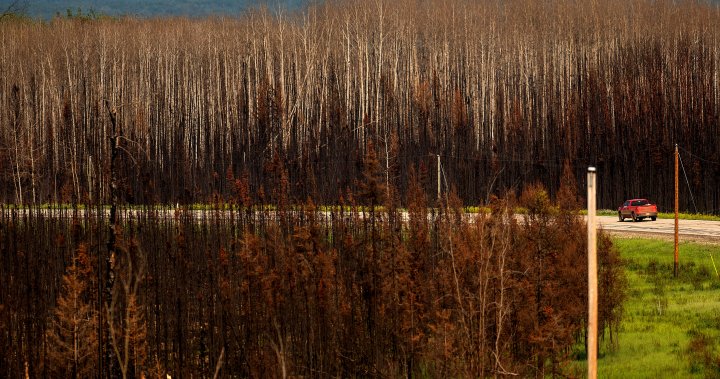A new report by the World Resources Institute has found that Canada’s record 2023 wildfire season led to a significant increase in the loss of the world’s tree cover. The report revealed that Canada’s tree cover loss reached eight million hectares last year, compared to just over two million hectares the year before. The global trend in tree cover loss largely depends on annual fire dynamics in boreal forests, with a 24 percent increase in global tree cover loss in 2023, primarily due to the significant increase in fire-driven tree cover loss in Canada. In contrast, tree cover loss decreased by four percent in the rest of the world.
The devastating wildfire season in Canada not only resulted in significant land burned but also destroyed homes, caused fatalities, and led to some of the worst air quality in the world in parts of Canada and the United States. While fires are a natural part of the ecosystem in northern forests and often lead to regrowth, more intense and frequent fires can cause permanent changes to forests. Additionally, smouldering fires can continue below ground and reignite, causing further damage. With an early start to the wildfire season in parts of Canada, experts and officials are warning of increased fire activity over the spring period, especially in areas such as Alberta and British Columbia.
Despite the variability from year to year, analysis shows that wildfire seasons in Canada are becoming longer. Chelene Hanes, a wildland fire research scientist with the Canadian Forest Service, emphasized the concern over persistent drought conditions from the previous season and their potential impact on this year’s wildfire season. The World Resources Institute’s report also highlighted a global rise in deforestation, with a 3.2 percent increase in 2023. Deforestation, which involves the permanent conversion of woodlands to other uses such as agriculture, is a significant driver of global climate change. More than 140 countries committed in 2021 to end deforestation by the end of the decade, but the report indicates that significant declines in deforestation are needed each year to reach this goal.
The report identified countries like Brazil, Indonesia, Bolivia, and the Democratic Republic of Congo as leading in deforestation. Rod Taylor, forests director with the World Resources Institute, expressed concern over the global trend of increasing deforestation and emphasized the need for urgent action to reduce destruction of forests. Experts warn that deforestation not only contributes to climate change but also has detrimental effects on biodiversity, ecosystems, and local communities that depend on forests for their livelihoods. The challenges posed by deforestation and wildfires underscore the urgent need for sustainable land management practices and global cooperation to address the growing threats to the world’s forests and ecosystems.


